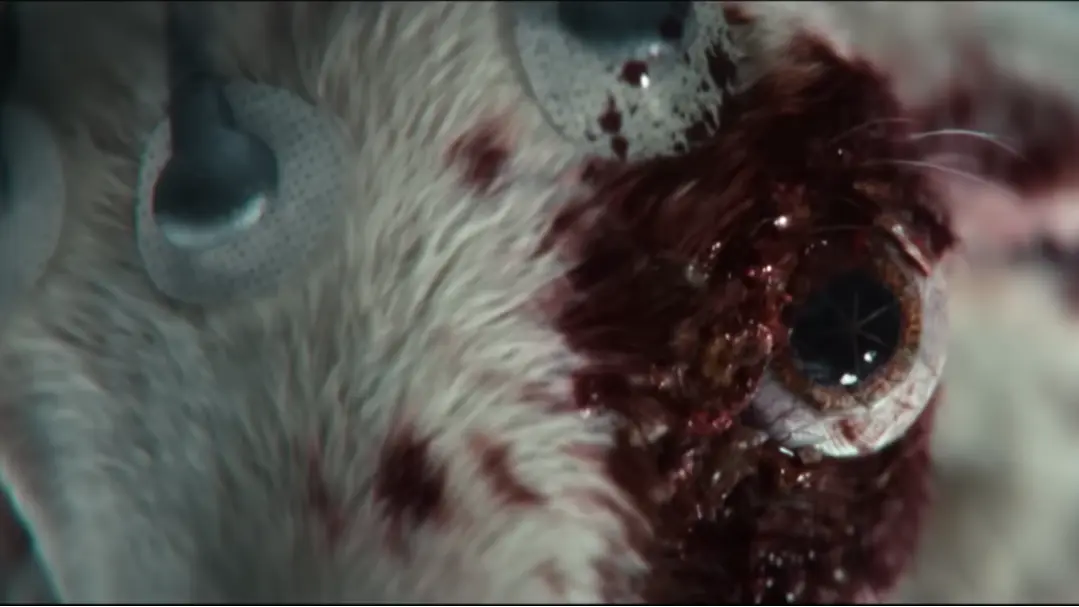Alien: Earth Episode 6 Ending Explained: What does the alien eye’s final stare mean?
-

Alien: Earth continues to expand the universe of the Alien franchise with bold storytelling, new monstrous species, and the familiar dread of corporate greed clashing with human survival. Created by Noah Hawley, the series blends horror, science fiction, and corporate satire while staying true to the franchise’s roots.
Unlike previous installments that focused heavily on Xenomorphs, Alien: Earth explores a wider ecosystem of creatures unleashed after the crash of the Weyland-Yutani vessel Maginot. Episode 6, titled The Fly, delivers some of the season’s most shocking moments yet, combining tragic character deaths with the rise of an unexpected scene-stealer: Species 64, the eerie, tentacled alien eye.
While the episode is filled with betrayals, ethical dilemmas, and corporate rivalries, the final stare of the alien eye leaves viewers haunted, raising big questions about what this creature really wants and what its presence means for the future of the series.
The alien eye’s final stare and what it means
The ending of Alien: Earth episode 6 is defined not by the swarm of flies but by Species 64 — the strange, one-eyed alien that has been manipulating events from the shadows. Earlier episodes had shown the creature’s ability to latch onto hosts and override their neural pathways, but here its power feels more insidious.
While Isaac’s gruesome death inside the flies’ containment cell is technically caused by them, the alien eye’s deliberate distraction is what seals his fate. This act is chilling because it doesn’t appear to benefit the creature in any immediate way. Instead, it suggests a level of intelligence and long-term planning beyond what the humans or hybrids expect.
The final stare of the alien eye reinforces this unease. Unlike the acid-blooded Xenomorphs, which are driven by instinct and survival, Species 64 seems to enjoy observing and interfering with human behavior.
Species 64 witnesses the whole ordeal involving Slightly and Arthur, and also the escape of the fly from the contaminated cell. In earlier episodes, the creature had already demonstrated problem-solving skills and even attempted to attack a Xenomorph, positioning itself as a possible predator rival. By ending the episode with its lingering look, as it is now attached to a goat to use as a puppet, the show hints that the alien eye is not just another monster — it might be the most dangerous force on the spaceship.
Looking ahead, this final moment may foreshadow bigger conflicts. If Species 64 is capable of orchestrating events without clear personal gain, it could represent a threat that undermines both Prodigy’s experiments and the survival of the Lost Boys. The stare isn’t just a visual scare; it’s a promise that the eye sees more than it lets on.
Its intelligence, combined with its parasitic abilities, could change the hierarchy of monsters within the series. The implication is that Alien: Earth may not simply be about humans versus Xenomorphs — it may also be about how humanity deals with a new, cunning alien species that thrives on control rather than chaos.
Series overview and episode recap
At its core, Alien: Earth takes familiar franchise themes - corporate exploitation, survival under pressure, and the terrifying biology of alien life - and repackages them for a serialized story. The show introduces multiple new species alongside the iconic Xenomorph, including the blood-draining Tick, the carnivorous D. Plumbicare plant, and the insect-like flies introduced in episode 6. Noah Hawley’s approach emphasizes not only the horror of these creatures but also the ethical compromises made by humans when faced with scientific power.
Alien: Earth episode 6, titled The Fly, showcases how the balance of control on Prodigy’s island, Neverland, is collapsing. Hermit begins to realize that his sister Wendy may never leave the island, as her connection to the Xenomorph is deepening. Dr. Dame Sylvia makes the difficult choice to tamper with Nibs’s memory despite her moral objections, highlighting the extent to which Prodigy’s influence corrupts even the most well-intentioned characters. Meanwhile, corporate tensions escalate between Boy Kavalier and Yutani, who clash over the wreckage of the Maginot and its cargo, proving once again that profit outweighs human life in their world.
The most tragic moment arrives when Isaac, one of the hybrids, is killed in the flies’ containment cell. His death is heartbreaking not only because of the brutality but also because it was engineered indirectly by Species 64, whose actions throughout the episode suggest it is playing a longer, more complex game. By the closing moments, viewers are left with the unsettling image of the alien eye, its unblinking gaze signaling that it is watching — and waiting.
The ensemble cast continues to impress, with Sydney Chandler as Wendy, Alex Lawther as Hermit, Essie Davis as Dame Sylvia, Samuel Blenkin as Boy Kavalier, and Kit Young delivering a memorable performance as Isaac in his final episode. Their performances ground the show’s high-concept science fiction in real human stakes, making the horror resonate beyond the spectacle of creature design.
The ending of Alien: Earth episode 6 makes it clear that Species 64 is more than just another monster — it may be the series’ hidden mastermind. Its final stare lingers not only in the minds of the characters but also in the audience’s imagination, setting the stage for an unpredictable clash of species and survival strategies in the episodes to come.
TOPICS: Alien: Earth
- Alien: Earth episode 6 - The Fly Recap: What happens to Arthur?
- What time does Alien: Earth Episode 6 drop? Release timings for all regions
- Bronski and Zaveri thought their fling was just a secret, until Alien: Earth turned it into a weapon
- What happened to Morrow at the end of Alien: Earth Episode 5? Explained